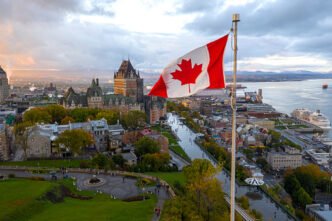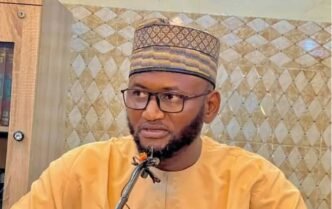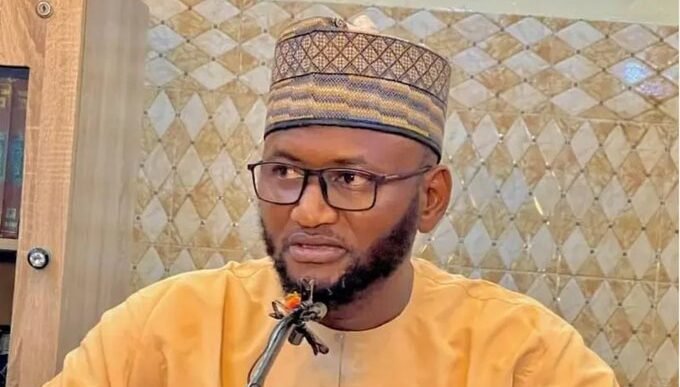The Nigerian Association of Resident Doctors (NARD) has raised serious concerns about the state of the country’s health sector, revealing that a single doctor now caters to an average of 9,083 Nigerians. The association described the situation as alarming, warning that the nation is edging dangerously close to a total healthcare collapse if urgent measures are not taken.
A Grim Statistic
According to data released by NARD, Nigeria’s doctor-to-patient ratio remains far below the World Health Organization (WHO) recommendation of 1 doctor to 600 patients. With millions of Nigerians lacking access to proper medical care, the current ratio of 1:9,083 paints a disturbing picture of an overwhelmed and under-resourced system.
Dr. Dele Abdullahi, President of NARD, explained that the shortage is due to a combination of factors, including poor working conditions, inadequate remuneration, and the mass exodus of Nigerian doctors to countries with better opportunities.
“Our doctors are overworked, underpaid, and often work in unsafe environments. The government must address this crisis immediately. Otherwise, the lives of ordinary Nigerians will continue to be at risk,” Abdullahi stressed.
Why the Shortage Exists
Several issues contribute to the dire state of Nigeria’s healthcare workforce:
1. Brain Drain
Thousands of Nigerian doctors have left the country in recent years, seeking better pay, facilities, and career growth abroad. The United Kingdom, Canada, and Saudi Arabia remain top destinations.
2. Poor Working Conditions
Many hospitals lack basic equipment, essential drugs, and functional infrastructure. Doctors often face burnout due to long hours and high patient loads.
3. Low Remuneration
Despite the critical nature of their work, doctors in Nigeria are among the lowest-paid compared to colleagues in many developing countries.
4. Insecurity and Harassment
In some regions, insecurity discourages health workers from staying, while cases of harassment and violence against medical staff have been reported.
Impact on Nigerians
The doctor shortage has devastating consequences on public health outcomes:
- Long Waiting Times: Patients often wait for hours, sometimes days, before seeing a doctor.
- Increased Mortality Rates: Preventable deaths from diseases such as malaria, hypertension, diabetes, and maternal complications are rampant.
- Strain on Specialists: Specialists are few, and with heavy workloads, cases requiring urgent attention are often delayed.
- Rural Neglect: Rural communities are the worst affected, with many having little or no access to qualified medical doctors.
Comparisons with Other Countries
- South Africa has a doctor-patient ratio of 1:3,198, already considered stretched but far better than Nigeria’s figures.
- Egypt boasts 1:800, closer to WHO’s benchmark.
- Ghana is at about 1:5,000—still higher than recommended, but again significantly better than Nigeria.
These comparisons highlight just how critical Nigeria’s crisis has become.
Calls for Government Action
The Nigerian Association of Resident Doctors has urged the federal government to:
- Improve Working Conditions: Upgrade hospital facilities and ensure adequate supply of equipment and drugs.
- Offer Competitive Pay: Review doctors’ salaries and allowances to match international standards and discourage migration.
- Invest in Training: Expand medical schools and create more residency slots to increase the number of trained doctors.
- Implement Retention Policies: Provide incentives such as housing, security, and research opportunities to keep doctors in the country.
- Expand Rural Healthcare: Deploy more doctors to rural areas through structured incentive schemes.
Public Reaction
Ordinary Nigerians have taken to social platforms to lament their experiences with the health system:
- Funmi, a Lagos mother of two, says she once waited nine hours at a government hospital before her child was attended to.
- Ibrahim, from Kano, shared that his uncle died because no doctor was available at the local clinic in time.
- Ngozi, a teacher in Enugu, noted that her family avoids hospitals altogether due to long queues and instead relies on chemists.
What Experts Say
Health policy analysts warn that unless urgent steps are taken, Nigeria risks a worsening health emergency.
- Professor Bisi Adebayo, a public health expert, noted: “Nigeria cannot develop with such a fragile healthcare system. An unhealthy population means lower productivity and a weaker economy.”
- International observers have also expressed concern, urging the Nigerian government to allocate at least 15% of its annual budget to health, as recommended by the Abuja Declaration of 2001.
The Way Forward
To bridge the gap, stakeholders have suggested a multi-pronged strategy:
- Mass Recruitment: Employ more doctors and healthcare workers immediately.
- Leverage Technology: Expand telemedicine and digital health solutions to reduce the load on physical hospitals.
- Public-Private Partnerships: Encourage private sector investment in healthcare infrastructure.
- Diaspora Engagement: Create programs that allow Nigerian doctors abroad to contribute their expertise locally, even if temporarily.
Conclusion
The revelation by NARD that one doctor now attends to 9,083 Nigerians is a wake-up call. Beyond statistics, it reflects the daily struggles of millions who cannot access timely, quality healthcare. Unless urgent interventions are made, Nigeria risks not only worsening health outcomes but also losing more of its skilled workforce to other countries.
The choice before the government is clear: act now to save the health system, or watch as more Nigerians lose their lives to preventable conditions in a collapsing sector.














